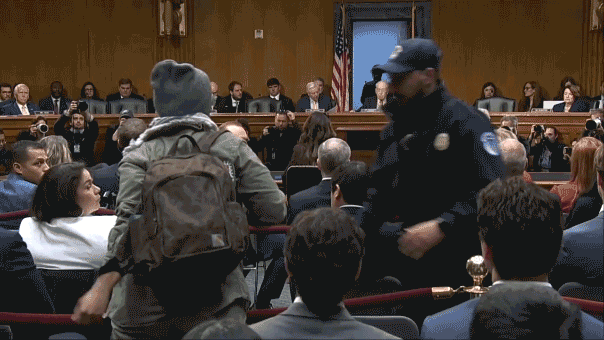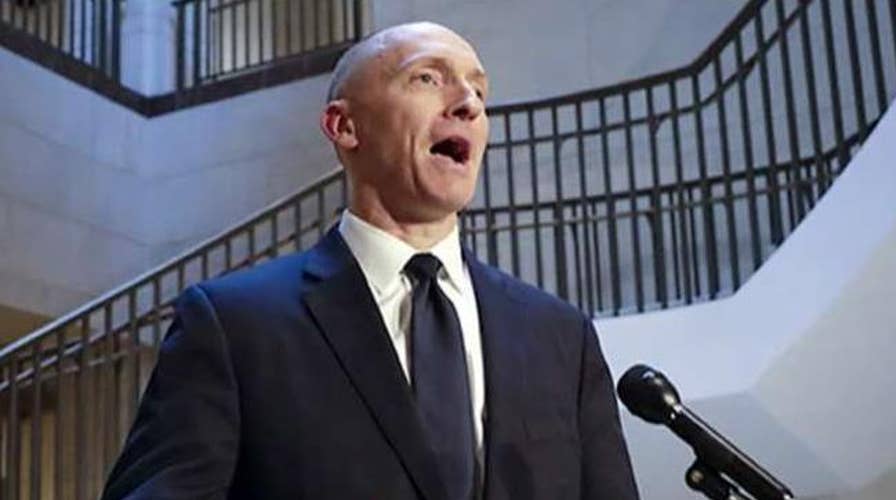FISA court selects former Obama administration lawyer to oversee FBI’s surveillance reforms
Inspector General found that the FBI misled the FISA court to keep Carter Page’s warrant alive; former federal prosecutor Francey Hakes weighs in.
House Oversight Committee Republicans on Thursday sent a series of interrogatories directly to the Foreign Intelligence Surveillance Court (FISC), Fox News has learned, in a major new intervention that highlights the secret court's growing credibility crisis following Department of Justice Inspector General (DOJ IG) Michael Horowitz's damning report earlier this year.
In a letter to FISC Presiding Judge James Boasberg, obtained by Fox News, House Oversight Committee ranking member Rep. Jim Jordan, R-Ohio, and Rep. Mark Meadows, R-N.C., demanded to know whether the FISC feels it "bears any responsibility" for the surveillance of former Trump aide Carter Page, the details of whatever "disciplinary action" the FISC intends to pursue against attorneys who knowingly deceived the court, and the timing of when the FISC learned of the first "indication" that materials in the Page warrant application were false or incomplete.
Additionally, Jordan and Meadows asked the FISC to explain whether it "conducted any internal review to examine the accuracy or validity of information contained in the FBI's surveillance applications for Carter Page," and if so, to explain the steps taken. Further, the Republicans asked whether the FISC would review FBI filings "in other matters" to ensure that they were completed accurately.
READ THE GOP HOUSE OVERSIGHT PANEL'S LETTER TO THE FISC
In December, the FISC ordered the FBI to review previous applications involving ex-FBI attorney Kevin Clinesmith, whom Horowitz found to have doctored an email from the CIA to make it seem as though Page's interactions with Russians were suspicious. However, the FISC left out other key players seemingly implicated in FISA misconduct by Horowitz's report, including FBI agent Joe Pientka, who quietly relocated to San Francisco in recent months without explanation, according to an update on a bureau site that was eventually edited to remove reference to his name.
Pientka was one of the agents responsible for following established procedures to verify dozens of inaccurate or unsubstantiated facts in the Page FISA warrant application, but he failed to do so, according to Horowitz's report.
Jordan and Meadows also took aim at the FISC's selection of David Kris -- a former Obama administration lawyer who has appeared on "The Rachel Maddow Show" and written extensively in support of the FBI's surveillance practices on the blog Lawfare -- to oversee the FBI's surveillance reforms. Kris, the Republicans wrote, "has seemingly prejudged the FBI's conduct with respect to Carter Page," including by writing articles that preemptively defended the Page warrant applications.
Even after Horowitz's report, Jordan and Meadows noted, Kris said that the FBI's errors were the result of sloppiness and not deliberate bias -- a conclusion Horowitz did not draw.
The oversight panel asked the FISC to specify "all candidates" considered alongside Kris for the role of FBI watchdog, as well as whether the FISC had reviewed Kris' previous accusatory statements about Page or his dismissive thoughts on the now-vindicated 2018 memo produced by House Intelligence Committee ranking member Devin Nunes, R-Calif., which asserted a series of surveillance abuses by the FBI against Page.
"If not, please explain why not," the Republicans wrote.
Earlier this week, Kris alerted the FISC that the FBI's proposals for reform were "insufficient" and must be dramatically "expanded" -- even declaring that FBI Director Christopher Wray needs to discuss the importance of accuracy and transparency before the FISC every time he "visits a field office in 2020."
The unclassified findings were a stark rebuke to Wray, who had filed assurances to the FISC last week that the agency was implementing new procedures and training programs to assure that the FBI presents accurate and thorough information when it seeks secret warrants from FISC judges. At the same time, Wray acknowledged the FBI's "unacceptable" failures as it pursued FISA warrants to surveil members of the Trump team.
Kris' submission was something of an unexpected redemptive moment for Republicans who have long called for more accountability in how the bureau obtains surveillance warrants, and who have questioned Kris' suitability.
"You can’t make this up!" President Trump tweeted on Sunday. "David Kris, a highly controversial former DOJ official, was just appointed by the FISA Court to oversee reforms to the FBI’s surveillance procedures. Zero credibility. THE SWAMP!”
"It’s hard to imagine a worse person the FISC could have chosen outside [James] Comey, [Andy] McCabe, or [Adam] Schiff,” Nunes said this weekend. Speaking to Fox News contributor Sara Carter, Nunes added: “It’s a ridiculous choice. The FBI lied to the FISC, and to help make sure that doesn’t happen again, the FISC chose an FBI apologist who denied and defended those lies. The FISC is setting its own credibility on fire.”
FISA COURT MONITOR CALLS FBI'S PROPOSED IMPROVEMENTS 'INADEQUATE' ; REPUBLICANS RAISED ALARM ABOUT COURT MONITOR'S APPARENT BIAS
The Oversight Committee Republicans broadly asked the FISC to "explain what specific steps the FISC will take to better protect the civil liberties of American citizens who are not represented in ex parte proceedings for electronic surveillance [i.e., those in which the defendant is not represented]" -- a topic that Kris broached in his most recent submission to the FISC.
The FBI's "focus on specific forms, checklists and technology, while appropriate, should not be allowed to eclipse the more basic need to improve cooperation between the FBI and DOJ attorneys," Kris told the FISC earlier this week, noting that the FBI and DOJ have historically not always worked well together.
"A key method of improving organizational culture is through improved tone at the top, particularly in a hierarchical organization such as the FBI," Kris said, noting that Wray's public statements on the matter, while positive, have not gone far enough. "Director Wray and other FBI leaders, as well as relevant leaders at the Department of Justice, should include discussions of compliance not only in one or two messages, but in virtually every significant communication with the workforce for the foreseeable future."
Indeed, the FISC "should require the FBI and DOJ to document and report on the nature and extent of this communication; such a requirement to document and report communication may encourage the FBI and DOJ to conduct more of it," he said. Every time Wray "visits a field office in 2020," Kris wrote, he should stress the importance of accuracy in FISA applications.
Top-down culture changes require "ongoing" and sustained efforts, not simply a handful of organizational reforms, Kris emphasized.
CLICK HERE TO GET THE FOX NEWS APP
Separately, Kris urged the FISC to hold more hearings and involve field agents in those hearings when possible, both to increase accountability and break down communication barriers. However, Kris noted that the bureau needs to be cautious when it implements major changes involving field agents, given its tarnished credibility.
In the meantime, the FISC has some new homework: The Oversight Committee Republicans set a 5:00 p.m. EST deadline on Jan. 30 for the FISC to respond to their questions.















































